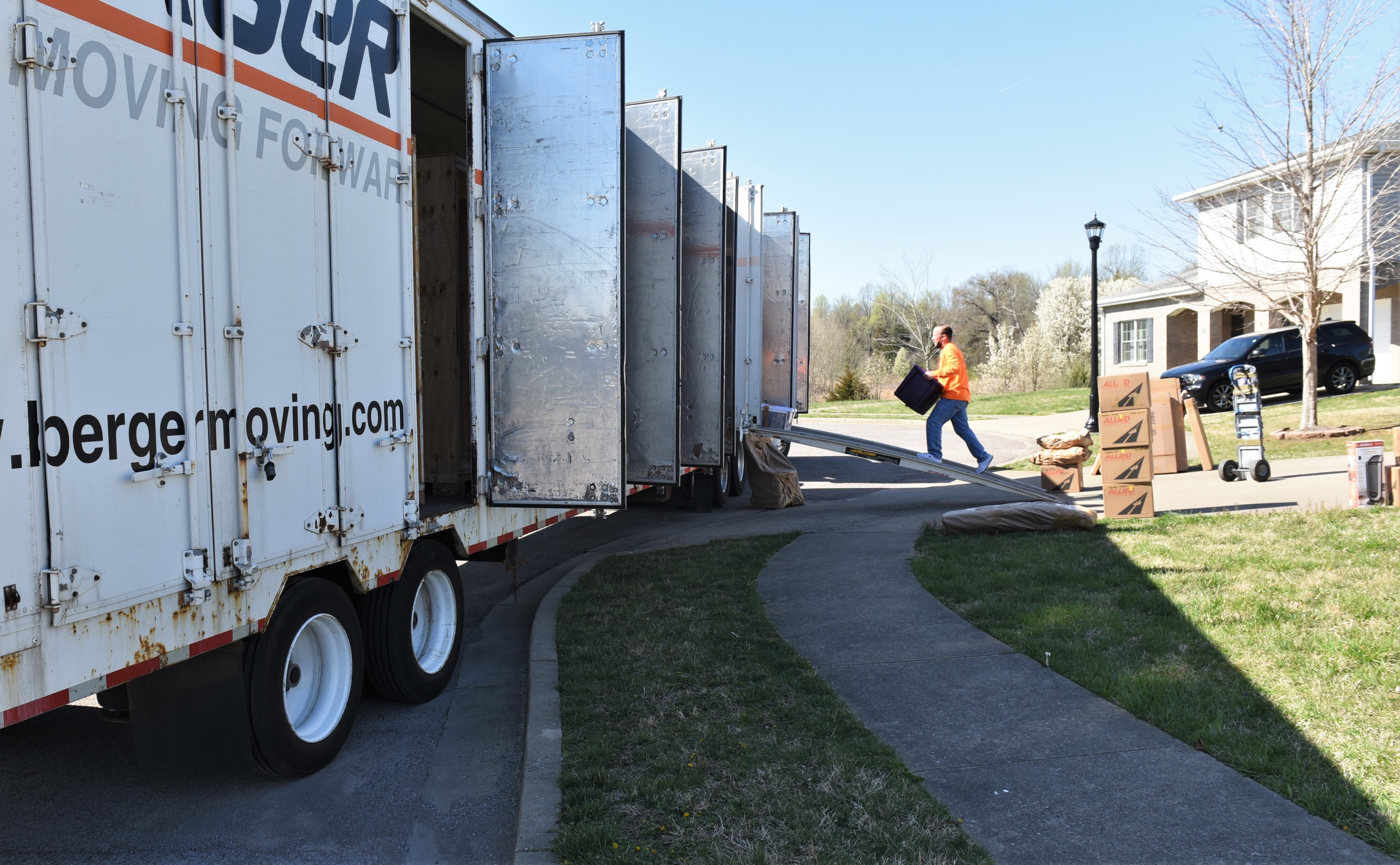A limited number of troops and their families are about to see the fruits of U.S. Transportation Command’s efforts to improve how household goods are shipped during military moves.
Within a few weeks, officials will announce five locations where they will begin assigning some troops’ household goods shipments to HomeSafe Alliance, the new contractor that will manage the flow of belongings around the world.
The new system is designed to improve troops’ ability to communicate with their moving company, provide information about the location of their belongings throughout the transit, and improve the claims process. And the Defense Department promises more accountability if things go wrong during a move, like broken or lost items or missed pickup and delivery dates.
“Every single move is important to us. Every service member and family deserve a good quality move, a professional experience, and one that’s free of stress,” Andy Dawson, director of the of the Defense Personal Property Management Office at TRANSCOM, said during a call with reporters Tuesday. “We couldn’t be more excited to move into the next phase and start executing shipments.”
Last year, TRANSCOM officials delayed plans to phase in shipments under the new contract while the Defense Department ensured its software works with the system used by HomeSafe.
“We weren’t ready, so the best course of action was to do as we’ve done until we were ready to go,” Dawson said. Technology tests in January showed the team has successfully addressed “the majority of challenges” and is ready to move forward with a “deliberate, conditions-based phase-in” of the program, Dawson said.
The first phase will be limited to local moves in those five areas, within a radius of about 50 miles. Examples of troops who can participate include those moving from off-base housing to on-base housing, or those who are moving off of a base as they retire.
The moves will likely represent less than 1% of the overall DOD move volume this year, Dawson said, as officials don’t want to roll out a major change during peak moving season, which typically runs from May to September. Dawson declined to specify the numbers of moves HomeSafe will handle. Most shipments will be moved under the current system this year.
TRANSCOM plans to phase in more moves — focused on domestic shipping first — between September 2024 and peak moving season in 2025. Troops and their families shouldn’t expect to see their belongings shipped internationally with HomeSafe until September 2025 at the earliest, Dawson said.
“The goal is to responsibly roll out the system as quickly as possible,” Dawson said.
RELATED

Number of household goods shipments declining
The shift to a central shipping contractor comes as the volume of military household goods shipments continues to fall in 2024.
The number of shipments logged in the first seven weeks of 2024 was 13% lower than the same period in 2023, Dawson said. TRANSCOM did not provide the total number of shipments handled so far this year by press time. Annually, the volume was 6% lower in 2023 than in 2022, Dawson said.
Why?
“I don’t have specifics, but I’d say it’s a combination of factors,” Dawson said, citing recruiting challenges, a shrinking military workforce and operational needs overseas. Those issues, combined with service policies that can affect the number of moves in a year, are reducing the flow of household goods, he said.
The military logged nearly 303,000 shipments of household goods in 2022. However, shipments don’t equal the number of moves because some service members send off multiple shipments over the course of a single permanent change of station.
Fewer orders can alleviate some of the pressure on the shipping industry to keep up, particularly during the busy summer moving season.
For years, shortages of truck drivers and the workers who pack, load and unload people’s personal belongings, as well as other supply chain issues, have further complicated military moves. In 2018, after a particularly brutal moving season for troops and their families, U.S. Transportation Command launched an effort to fix many of the long-standing problems that plague service members when their household goods are moved, from delays in pickups and deliveries, to lost and broken belongings, difficulties with filing claims and more.
That effort led TRANSCOM to award HomeSafe Alliance, a joint venture of KBR Services and Tier One Relocation, a three-year, $6.2 billion contract to manage hundreds of companies that ferry household goods around the globe. The contract’s value could grow to about $18 billion over a decade.
TRANSCOM began the shift away from its longtime piecemeal approach in January 2023, after protests of HomeSafe’s win had subsided. That transition will run through Feb. 11, 2025, with an extra $60 million tacked onto the contract.
RELATED

TRANSCOM officials argue the new system will bring more accountability to companies involved in PCS moves. The contract essentially outsources the management of the household goods shipping process, which provides door-to-door transportation and warehouse services for people’s belongings as they transition to jobs at new bases.
HomeSafe has been compiling a network of companies to provide those services, which includes many of the 800-plus companies that currently handle shipping under the DOD-run program. TRANSCOM will continue to oversee the enterprise.
Dawson expects service members will encounter a more user-friendly process, starting with their request to ship goods in the MilMove system. That request will go to the local military shipping office for review and approval, before being passed to the HomeSafe Connect system.
HomeSafe will be the single point of contact, addressing communications problems troops have with the current system and letting troops know the location of their shipment throughout the process, Dawson said.
Service members can choose whether to have their household goods surveyed virtually or in person ahead of their departure; their inventory will be fully automated. Their belongings will be assigned bar codes that help facilitate claims in case of any loss or damage.
That electronic inventory will replace the pages-long paper inventories that chronicle each PCS, as well as stickers that military families currently collect on their household goods across many moves.
Karen has covered military families, quality of life and consumer issues for Military Times for more than 30 years, and is co-author of a chapter on media coverage of military families in the book "A Battle Plan for Supporting Military Families." She previously worked for newspapers in Guam, Norfolk, Jacksonville, Fla., and Athens, Ga.




